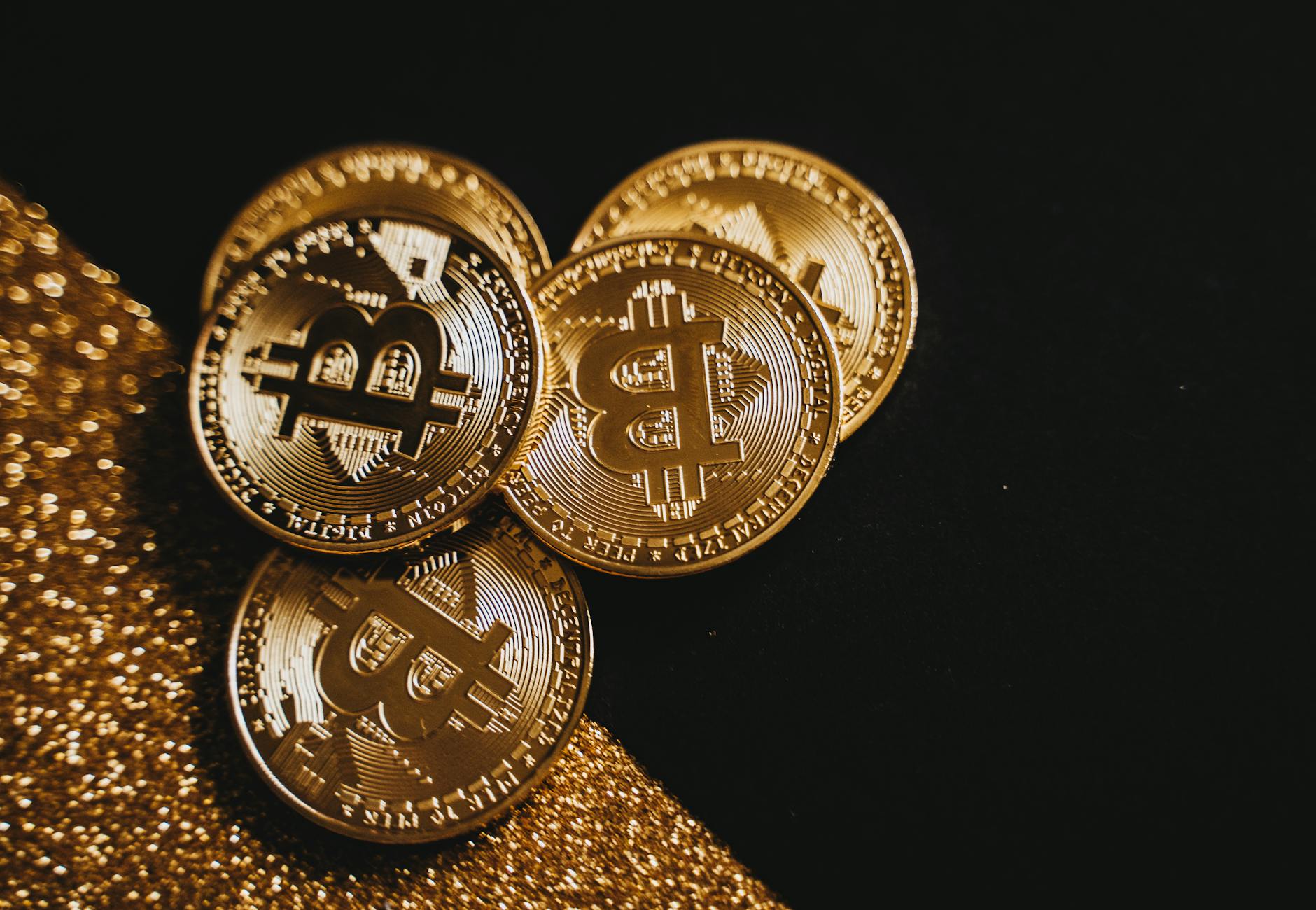WLFI Freezes Justin Sun 100M Crypto: Decentralization Under Fire Now
- Get link
- X
- Other Apps

WLFI Freezes Justin Sun's $100M Crypto: Decentralization Debate Rekindled
📌 Event Background and Significance
The recent freezing of nearly 595 million WLFI tokens, worth over $100 million, belonging to Tron founder Justin Sun by World Liberty Financials (WLFI) has ignited a significant debate within the crypto community. This event highlights ongoing tensions between the ideals of decentralization and the practical realities of project governance in the volatile world of cryptocurrencies.
This incident underscores a critical question: When should a project intervene to protect its token's value, and at what cost to the principles of decentralization? This is not the first time Justin Sun has been involved in a high-profile crypto controversy, further amplifying the scrutiny surrounding this event.
Historically, the crypto space has struggled with balancing decentralization and the need for some level of control to prevent market manipulation and protect investors. Past regulatory failures and instances of unchecked whale activity have demonstrated the potential dangers of completely hands-off governance. However, actions like freezing wallets raise concerns about centralization and the potential for abuse of power. This balance is particularly crucial now, as regulators worldwide are increasingly focused on establishing clear guidelines for the crypto industry.
📊 Market Impact Analysis
🚀 The WLFI-Sun standoff has already had a noticeable impact on the market, primarily affecting the price of WLFI tokens. The token's value has plummeted by over 60% since its launch, exacerbating investor concerns and triggering a wave of negative sentiment.
Market Analysis:
In the short term, expect continued price volatility for WLFI as the dispute remains unresolved. Investor confidence in WLFI is likely to remain low until a clear resolution is reached and the project demonstrates a commitment to transparency and fair governance. In the longer term, this event could set a precedent for how crypto projects handle potential market manipulation, potentially leading to more centralized control mechanisms.
⚖️ This situation also casts a shadow on the broader DeFi (Decentralized Finance) sector, raising questions about the true level of decentralization in many projects. If projects can unilaterally freeze assets, it challenges the fundamental promise of DeFi and could deter investors from participating in these platforms.
📌 Key Stakeholders' Positions
The perspectives of key stakeholders are crucial in understanding the implications of this event:
- Justin Sun: Sun vehemently denies allegations of market manipulation and dumping, claiming the transfers were merely "small deposit tests." He argues that freezing his assets is "unreasonable" and undermines the core principles of blockchain, emphasizing that all investors should be treated equally.
- WLFI Team: The WLFI team maintains that the blacklisting was necessary to prevent potential dumping that could further destabilize the token's price. They have also announced a buyback-and-burn program in an attempt to stabilize prices and restore investor confidence.
- Market Observers and Critics: Many critics argue that freezing Sun's wallet, regardless of the intent, contradicts the principles of decentralization and transparency. They warn that such actions can damage the project's credibility and erode investor trust. Others acknowledge the need to protect against market manipulation but question the fairness and transparency of the process.
Stakeholder Positions Summary
| Stakeholder | Position | Impact on Investors |
|---|---|---|
| Justin Sun | Denies dumping, calls freeze "unreasonable." | ⚖️ Advocates for equal treatment, raises concerns about asset security. |
| WLFI Team | 💰 Defends freeze to prevent market destabilization. | Prioritizes token price stability, faces scrutiny over decentralization. |
| 💰 Market Critics | Questions decentralization, criticizes lack of transparency. | 👥 Highlights risks of centralized control, affects investor confidence. |
🔮 Future Outlook
⚖️ The future of WLFI and the broader implications for the crypto market depend on how this situation is resolved. Several potential scenarios could unfold:
- Resolution and Reconciliation: If Sun and the WLFI team can reach an agreement and unlock his tokens, it could help restore some investor confidence. However, the project will need to demonstrate a clear commitment to transparency and fair governance to fully regain trust.
- Escalation and Legal Action: If the dispute escalates, Sun could pursue legal action against WLFI. This could further damage the project's reputation and create significant uncertainty for investors.
- Regulatory Intervention: This event could attract the attention of regulators, particularly if it raises concerns about market manipulation or investor protection. Increased regulatory scrutiny could lead to stricter rules and oversight for crypto projects.
Regardless of the outcome, this incident serves as a reminder of the inherent risks and challenges of investing in cryptocurrencies, particularly those with centralized governance structures.
📌 🔑 Key Takeaways
- The freezing of Justin Sun's WLFI tokens highlights the ongoing tension between decentralization and control in crypto projects. This is a persistent debate with no easy answers.
- The event has negatively impacted WLFI's price and investor sentiment, underscoring the importance of transparency and fair governance. Price volatility will likely continue until the issue is resolved.
- Key stakeholders have differing views, with Sun denying manipulation, the WLFI team defending their actions, and critics questioning decentralization. Understanding these perspectives is crucial for investors.
- The future outlook is uncertain, with potential scenarios ranging from resolution and reconciliation to legal action and regulatory intervention. Investors should monitor these developments closely.
- This incident serves as a cautionary tale, reminding investors of the risks associated with projects that may not be as decentralized as they claim to be.
The current market dynamics surrounding the Justin Sun/WLFI incident suggest a pivotal moment for decentralized governance. It's becoming increasingly clear that truly decentralized projects will need robust, transparent, and pre-defined dispute resolution mechanisms to prevent ad-hoc actions that undermine investor confidence. From my perspective, the lack of such a mechanism in WLFI’s governance led directly to the current crisis. Expect increased investor scrutiny on governance models and tokenomics of smaller cap DeFi projects in the short term. If WLFI doesn't find a way to credibly address this governance gap, they risk long-term damage to their brand and adoption prospects.
- Carefully evaluate the governance structures of DeFi projects before investing, looking for clearly defined dispute resolution processes.
- Monitor WLFI's price action and news flow for signs of resolution or further escalation of the conflict.
- Diversify your portfolio across multiple DeFi projects to mitigate the risk of exposure to governance-related issues.
- Consider reducing or exiting your position in WLFI if the project fails to demonstrate a commitment to transparency and fair governance.
⚖️ Decentralized Governance: The process by which a blockchain project makes decisions through a community-driven process rather than a central authority, intended to ensure fairness and transparency. In practice, implementations vary widely.
— Satoshi Nakamoto
Crypto Market Pulse
September 6, 2025, 03:10 UTC
Data from CoinGecko
This post builds upon insights from the original news article, offering additional context and analysis. For more details, you can access the original article here.
- Get link
- X
- Other Apps

